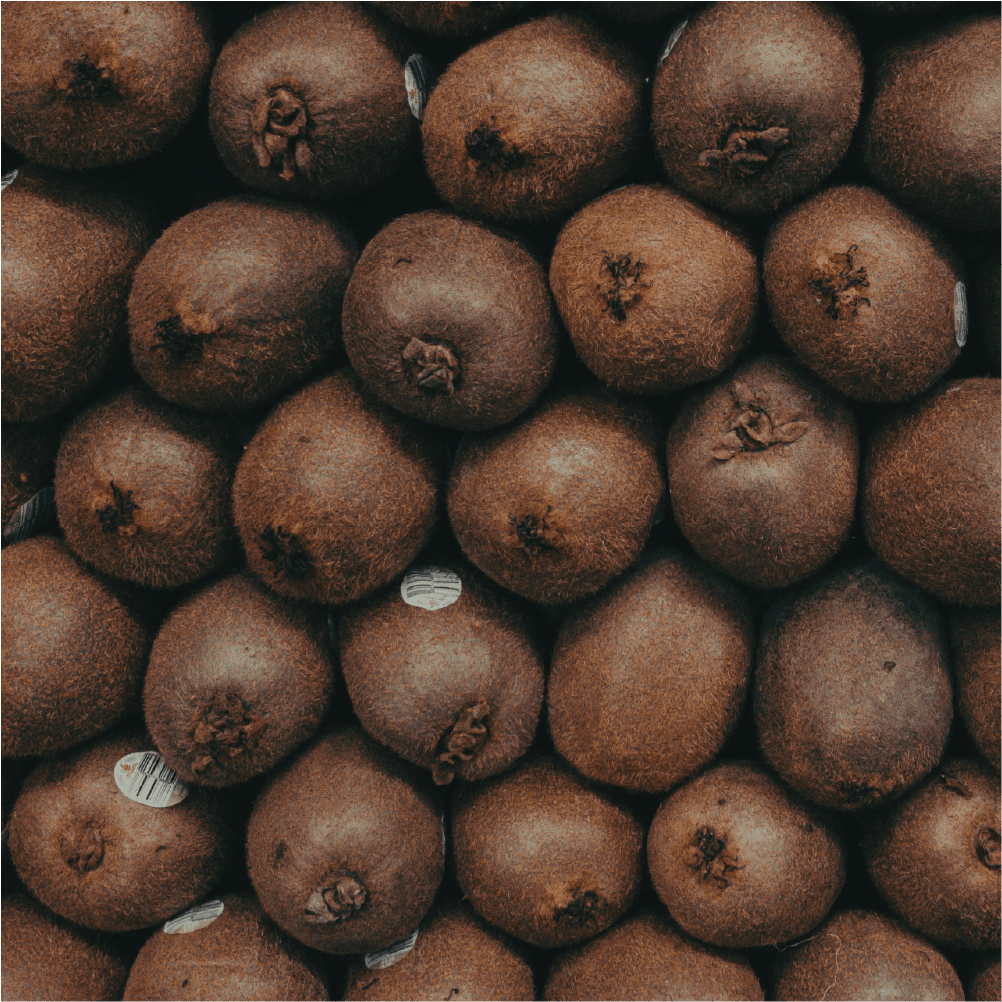
May 31 2022
What to drink
and eat before bed?
8 recommended foods
Sleep experts and nutritionists have conducted various sorts of studies to find out the best foods for sleep. Most people have agreed how food and drinks can affect their energy and focus throughout the day so it’s understandable that people want to take advantage of food and drinks which have sleep-promoting properties. Nutrition plays a key role in how well we sleep so we decided to share our favourites with you because we know that you can’t always control when hunger strikes. Our choice was based on underlying nutritional components in food and drink which affects your energy and sleepiness.
1. Kiwi
Kiwis are low-calorie fruit with high fiber content rich in serotonin and antioxidants. Eating kiwis benefits your digestive health, reduces inflammation, and lowers your cholesterol. This makes it one of the best foods to eat before going to sleep. Eating 1–2 medium kiwis before bed will help you fall asleep faster and stay asleep longer.
2. Walnuts
Walnuts are an all-natural ingredient and contain more ALA – an anti-inflammatory omega-3 fatty acid – than any other nut. Walnuts are a great source of tryptophan, a sleep-enhancing amino acid that helps make serotonin and melatonin. Melatonin helps you fall asleep faster. There is no limit when it comes to the amount of walnuts to consume. A regular serving is usually 7 to 14 walnuts and it is advised to take 1 or 2 servings per day.
3. Milk
Milk (and other dairy products) are a really good source of tryptophan – an amino acid that helps you sleep. Tryptophan is not naturally produced by our bodies and it plays an important role in the production of serotonin which is a precursor to melatonin. Melatonin prepares your body for entering a sleep cycle. Having a warm glass of milk before bed is a tradition passed on for generations and those psychological effects of a bedtime routine of relaxation may improve your ability to fall asleep.
4. Turkey
If fruits and nuts won’t satisfy your cravings before going to bed, turkey is a great alternative for a late night snack. Turkey is high in protein which is important for keeping your muscles strong and regulating your appetite. Consuming moderate amounts of protein before going to bed with better quality sleep and less waking up during the night. Turkey is also one of the foods which contain tryptophan.
5. Almonds
Eating almonds regularly lowers the risks of a few chronic diseases because it reduces the body’s levels of low-density lipoprotein (LDL) cholesterol, which can block arteries. They contain high doses of melatonin which helps regulate circadian rhythm and synchronize our sleep-wake cycle with night and day. Almonds are a really healthy evening snack, as they are high in good fats and low in sugar and saturated fats. The recommendation is to eat around 23 almonds a day.
6. Chamomile Tea
Chamomile contains the antioxidant apigenin, which promotes calm and sleepiness. For years, chamomile tea has been used as a natural remedy to reduce inflammation and anxiety and treat insomnia. The plant extract contains apigenin, a chemical compound that induces sleepiness. Warm beverages have a calming effect and are a great relaxing bedtime ritual. It is advised to drink one cup of chamomile tea about 45 minutes before bed if you’re hoping to induce sleepiness.
7. Rice
Rice is high in carbohydrates, which are thought to promote a sense of fullness and restfulness. White rice may be beneficial to eat due to its high glycemic index (GI) which can help improve the sleep quality. Rice is not the healthiest food so we would advise you to stick to one-cup serving and eat it at least 1 hour before going to bed.
8. Bananas
Bananas are high in potassium, magnesium, vitamin C, vitamin B6, and fiber. The high levels of potassium in bananas can relax your muscles and reduce nighttime cramps, while magnesium may help you relax and release stress before bed. One to two bananas per day is considered a moderate intake. It is an interesting fact that one medium-sized banana includes 9 percent of your daily potassium requirement, 33 percent of your vitamin B6 requirement, and 8 percent of your magnesium requirement.
There is no direct evidence that a single food can guarantee a good night’s sleep, but it can definitely make it easier.



